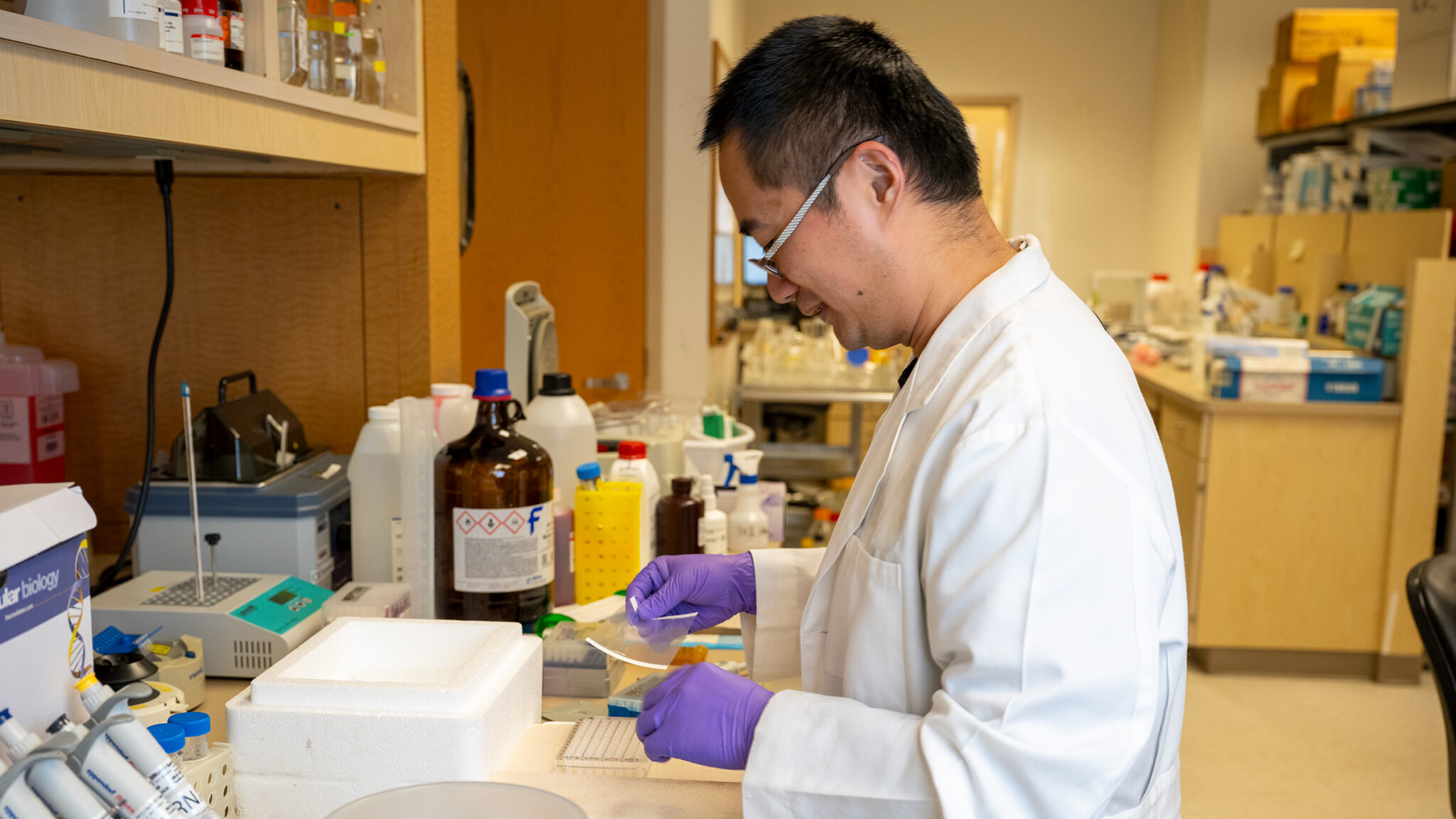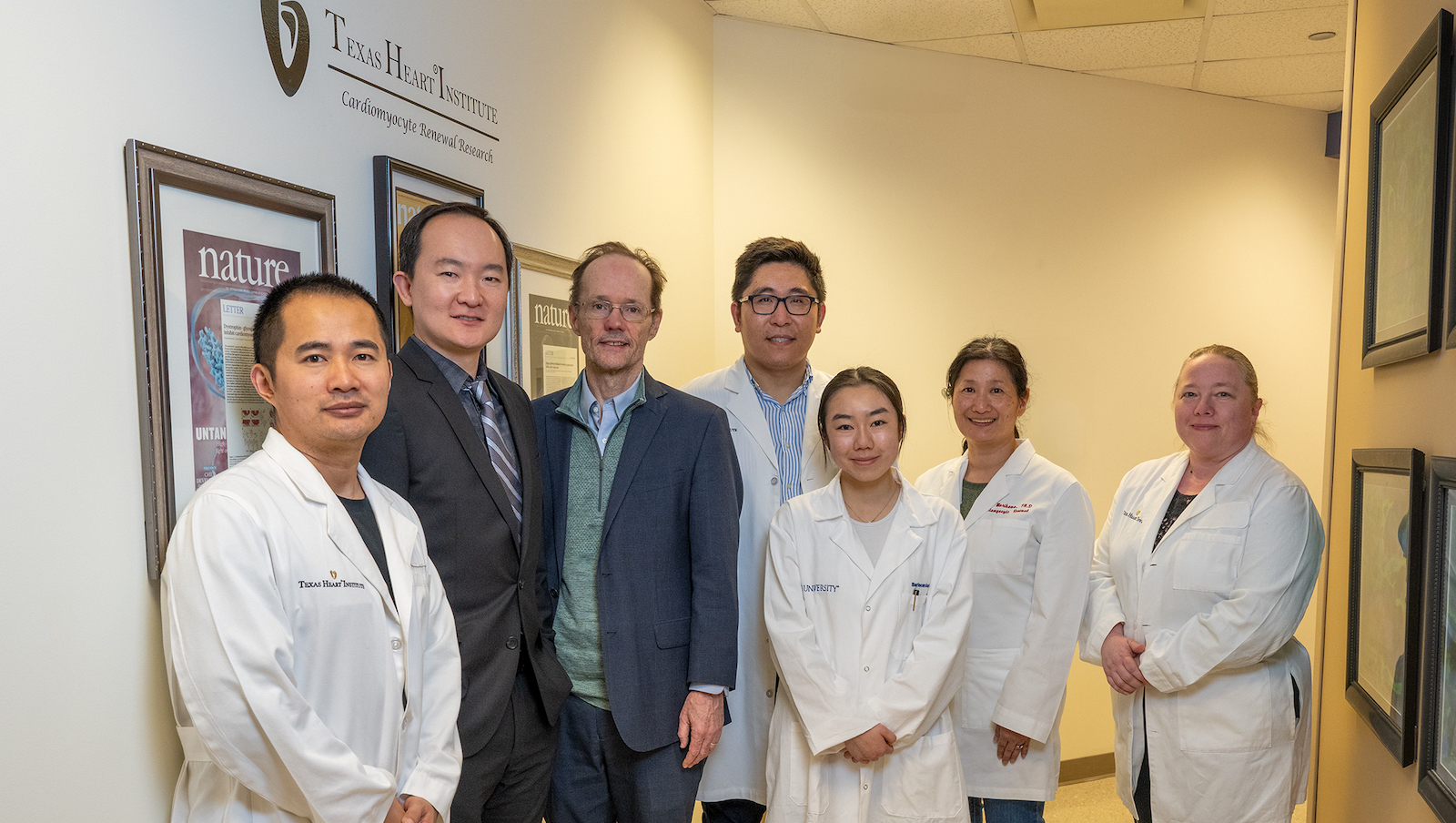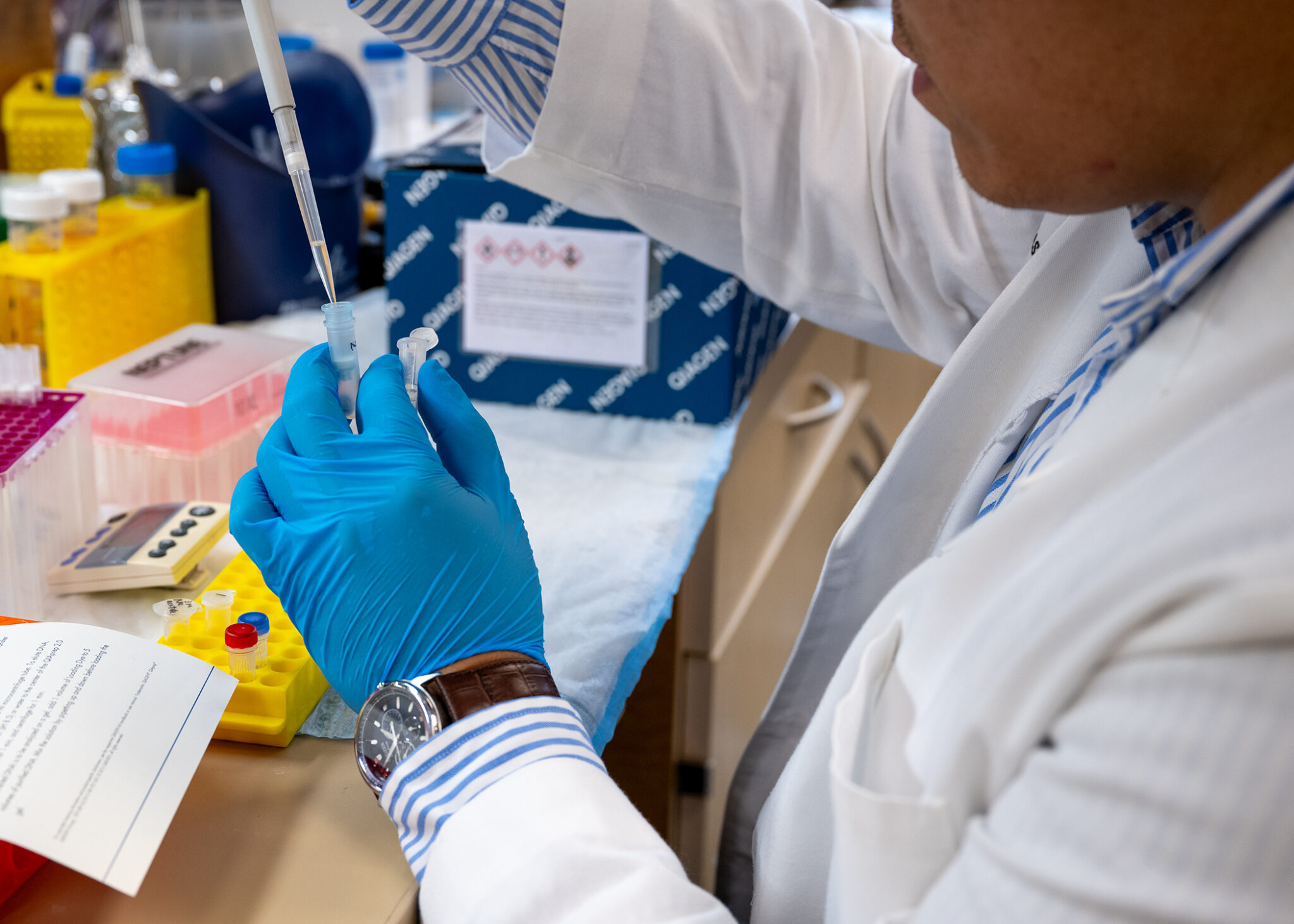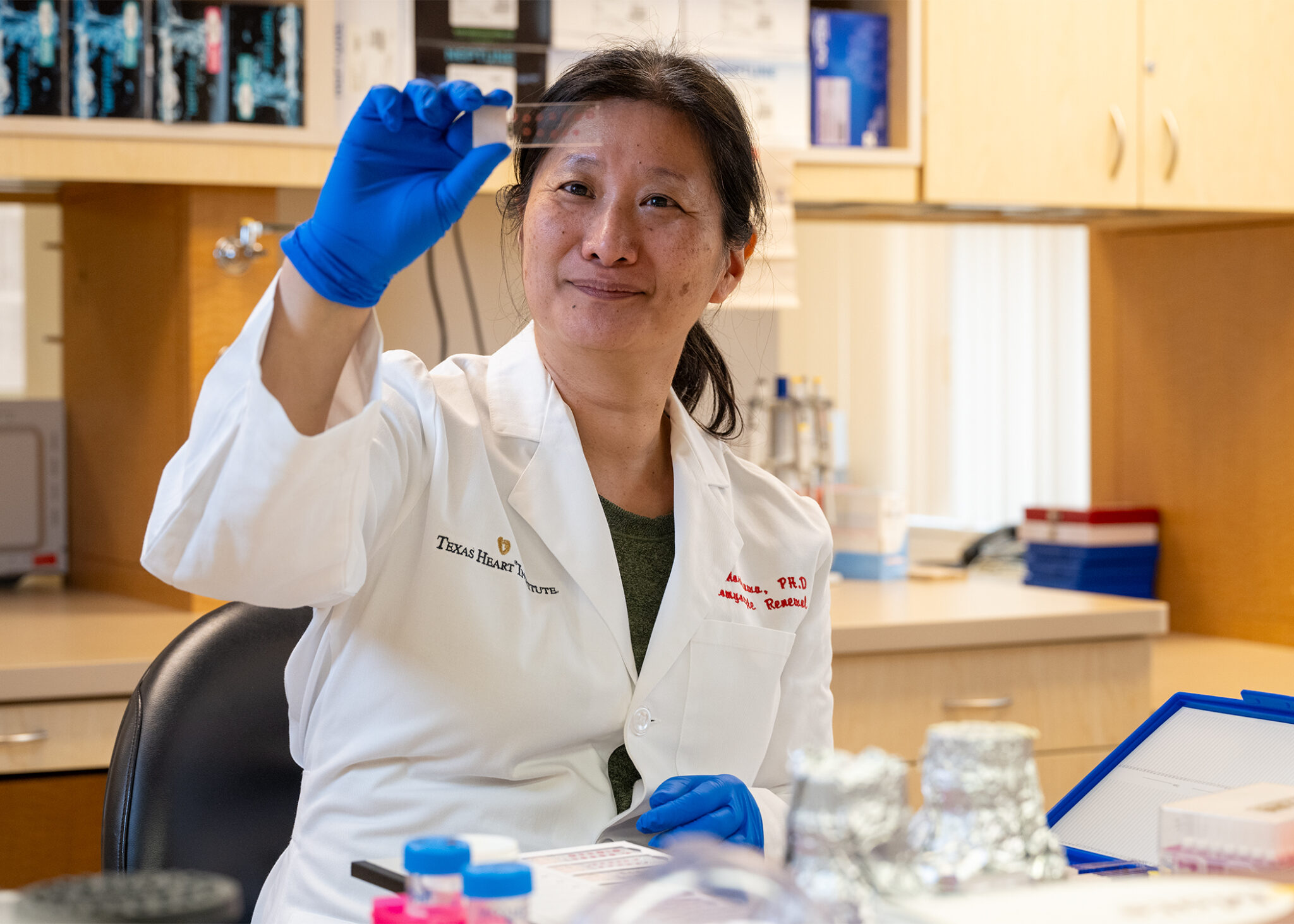Targeting the Microenvironment Rather Than a Specific Cell Type Could Be the Key to Healing Injured Hearts

Novel Discovery and Milestone in Cardiac Research Revealed in Nature Cardiovascular Research
HOUSTON (February 14, 2024) – A groundbreaking scientific study published in Nature Cardiovascular Research has unveiled a remarkable discovery that may have far-reaching implications for the treatment of heart disease.
The intensive investigations utilizing single-cell genomics and genetic experiments were conducted by a team of renowned scientists in the Cardiomyocyte Renewal Laboratory and McGill Gene Editing Laboratory at The Texas Heart Institute, including James F. Martin Vivian L. Smith Chair in Regenerative Medicine and Vice Chairman and Professor of Molecular Physiology and Biophysics at Baylor College of Medicine, and co-first authors Xiao Li, PhD, and Rich Gang Li, PhD. Titled “YAP Induces a Neonatal Like Pro-Renewal Niche in the Adult Heart,” this research sheds light on the potential of the human heart to achieve self-repair and regeneration.

Pictured Left to Right: Fansen Meng, PhD, Xiao Li, PhD, James Martin, MD, PhD, Rich Li, PhD (back), Maggie Lim (front), Yuka Morikawa, PhD, Ann Bromley.
Heart disease remains a leading cause of death worldwide, with myocardial infarction, also known as a heart attack, causing irreparable damage to cardiac muscle cells. While current treatments focus on alleviating symptoms and improving blood flow, they fall short in addressing the crucial issue of lost cardiomyocytes (CMs), leading to further complications such as heart failure. However, this groundbreaking study offers hope for a paradigm shift in regenerative medicine.
Contrary to longstanding beliefs, the study reveals that regeneration of CMs requires a complex microenvironment, where a dynamic synergy between CMs, resident immune cells, and cardiac fibroblasts is the driving force behind cardiac renewal. Through intricate signaling mechanisms, these cell types coordinately instruct and support each other, facilitating CM proliferation and effectively repairing damaged heart tissue.
- Rich Li, PhD
- Yuka Morikawa, PhD
“Understanding heart regeneration on a molecular level is an important step towards developing innovative therapeutics that can facilitate CM regeneration,” said the team in their lay summary. “Our study challenges the existing paradigm, suggesting that targeting the microenvironment rather than a specific cell type is instrumental in healing the injured heart.”
The implications of this groundbreaking discovery are immense, offering glimpses of a future where heart disease may no longer be an irreversible condition but a challenge that can be overcome through medical intervention. The potential for developing novel therapies that leverage the body’s innate regenerative capacity holds great promise for millions of individuals affected by heart disease worldwide.
“YAP Induces a Neonatal Like Pro-Renewal Niche in the Adult Heart” is a milestone in cardiac research. It unlocks a new avenue for scientific exploration and fosters hope for a future where damaged hearts can mend themselves. This remarkable study, published in a prestigious journal like Nature Cardiovascular Research, confirms the significance and impact of these findings.
Read Full Article
Li, R.G., Li, X., Morikawa, Y. et al. YAP induces a neonatal-like pro-renewal niche in the adult heart. Nat Cardiovasc Res (2024). https://doi.org/10.1038/s44161-024-00428-w
The work is supported by the National Heart, Lung, and Blood Institute (HL127717, HL130804, and HL118761 to JFM), the American Heart Association (AHA) (849706 to SL, 903651 to RGL, and 903411 to FM), the Don McGill Gene Editing Laboratory of The Texas Heart Institute (XL), and the Vivian L. Smith Foundation (JFM)
The content of this research is solely the authors’ responsibility and does not necessarily represent the official views of the NIH or AHA.
Feature Photo: Pictured Left to Right: Fansen Meng, PhD, Xiao Li, PhD, James Martin, MD, PhD, Rich Li, PhD, Maggie Lim, Yuka Morikawa, PhD, Ann Bromley.
Connect with the team on social media: James F. Martin @jmartinlab, Xiao Li @SirScienceAlot, and Rich Li @RichGangLi
#
ABOUT THE TEXAS HEART INSTITUTE
The Texas Heart Institute (THI) is an independent, nonprofit organization with the mission of improving cardiovascular health today through trailblazing research, thought leadership, education, and patient care. Located within the Texas Medical Center in Houston, Texas, and founded in 1962 by renowned cardiac surgeon Dr. Denton Cooley, THI performed the first successful heart transplant and total artificial heart implant in the United States. Since then, its physicians and surgeons have remained recognized as worldwide leaders in diagnosing and treating even the most complex cardiovascular conditions. Research programs at THI continue pushing cardiovascular science’s boundaries by translating laboratory discovery into patient care. THI has been ranked among the top cardiovascular centers in the United States by US News & World Report for over 30 years. www.texasheart.org
@texasheartinstitute
ABOUT BAYLOR COLLEGE OF MEDICINE
Baylor College of Medicine (www.bcm.edu) in Houston is recognized as a health sciences university and is known for excellence in education, research and patient care. It is ranked 22nd among medical schools for research and 17th for primary care by U.S. News & World Report. Baylor is listed 20th among all U.S. medical schools for National Institutes of Health funding and No. 1 in Texas. The Baylor pediatrics program ranked 7th among all pediatric programs, reflecting the strong affiliation with Texas Children’s Hospital where our faculty care for pediatric patients and our students and residents train. Nationally our physician assistant program was ranked 3rd in the health disciplines category and our nurse anesthesia program ranked 2nd. Located in the Texas Medical Center, Baylor has affiliations with seven teaching hospitals and jointly owns and operates Baylor St. Luke’s Medical Center, part of St. Luke’s Health. Currently, Baylor has more than 3,000 trainees in medical, graduate, nurse anesthesia, physician assistant, orthotics and genetic counseling as well as residents and postdoctoral fellows. Follow Baylor College of Medicine on Facebook (http://www.facebook.com/BaylorCollegeOfMedicine) and Twitter (http://twitter.com/BCMHouston).
Media Contacts
Keri Sprung
ksprung@texasheart.org
832-355-3792
Graciela Gutierrez
graciela.gutierrez@bcm.edu
713-798-4710






